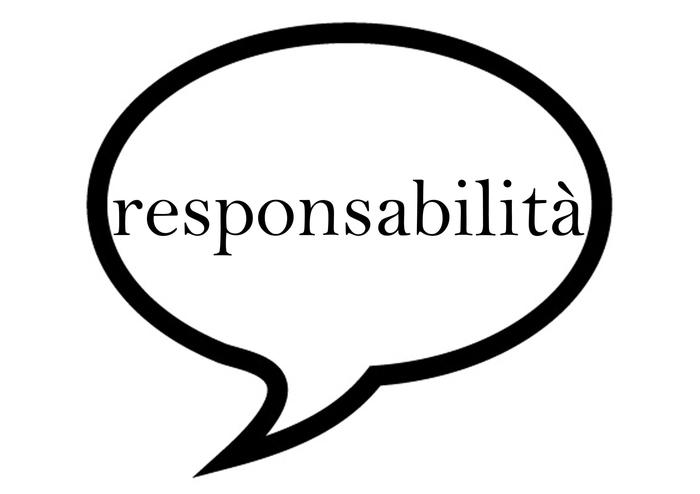In one of his tasty lectures on group dynamics, Julio Velasco, the coach of the Italian super-winning volleyball team of the 90s, talks about how the hitter in a volleyball team always looks for an alibi for a wrong dunk by blaming the the lifter, who raised it badly , which in turn turns to whoever has received the opposing joke and has made it bad. This, however, can no longer unload responsibility on anyone, because it is the first of that chain. One might ask: are we men or crushers? What Velasco is saying is: let's take our responsibilities.
Many in these weeks but especially in the last few days, and among these the most authoritative of all, the President of the Republic, have appealed to this expression . Because? And what exactly does it mean?
Listen to "The word of the week: responsibility (by Massimo Sebastiani)" on Spreaker.
For once, although the root of the term is obviously Latin, we must not go back to ancient Rome or Greece to find the first onset of this expression. The beauty of the word responsibility is that it is modern. Indeed we could say that it overlooks the threshold of modernity: the first documented use is in a text that is titled, think a little, 'The federalist'. It is a collection of articles by Alexander Hamilton , John Jay and James Madison published in 1788 where the word "responsability" is used for the first time, to indicate that the United States government is responsible for its work towards the people who he delegated his powers.
It is no coincidence that the word was born at the dawn of modernity, linked to that revolution that opened the doors to democracy as we still know it today. It is in fact a word strictly connected to the development and enhancement of the individual who, as we understand him, children of that modernity, and as Velasco understands it, did not exist before. Individuum, that is, an undivided nucleus, could also be a couple or even a family. Responsibility, on the other hand, derives from rejecting, that is, responding, which in turn is composed of re-, backward, and pushing, promising. So we respond by promising something back, for example behavior consistent with the common rules that we have given and accepted . Because responsibility certainly implies a call in cause of the individual but as connected and interdependent from others.
This is why the thinker who more than any other in the twentieth century reflected on this concept, Hans Jonas, in his 'The principle of responsibility' speaks of a rationalist ethics applied to the consequences that our behaviors can have , not only at this time and not only on a person or a situation, but on the entire biosphere. And therefore it is also a responsibility projected into the future. Jonas, a student of Martin Heidegger and fellow student of Hannah Arendt , the author of the famous The Banality of Evil, which Greta Thunberg would have liked , distinguished, on Max Weber's line, between ethics of conviction or ethics of principles and ethics of responsibility.
The first is based on absolute principles , is ideological and therefore much less sensitive to the consequences it can produce; the second is the ethics of complexity , based on relationship systems and is the result of a chain process (and it is also the one basically described by Velasco in the amusing search of the alibi by the spiker. It should be noted that the beautiful word alibi , which also derives from the Latin, means 'elsewhere' and this is the exact opposite of responsibility: I was not here, I was elsewhere, I am not what you are looking for, as Francesco De Gregori would say).
The ethics of responsibility constantly thinks about the balance of consequences and benefits, where the limit of the individual's freedom - which without limits would not be such - is precisely this responsibility. There are many types of responsibilities : the most famous is of course the legal one, which can be criminal or civil, but there is also social, objective responsibility (even without direct fault), and of course there is a political responsibility. "For unruly people who want to receive everything on a silver platter - wrote the Iranian Saeed Habibzadeh - responsibility is a burden they want to be freed from". Perhaps because, as Daisaku Ikede, president of Soka Gakkai, the international Buddhist association , explains , responsibility implies listening : of a community by a leader, for example. This responsibility, if taken without awareness, can also drive you crazy. As happens to Jack Torrance, the protagonist of Shining .
Based on the film Shining

